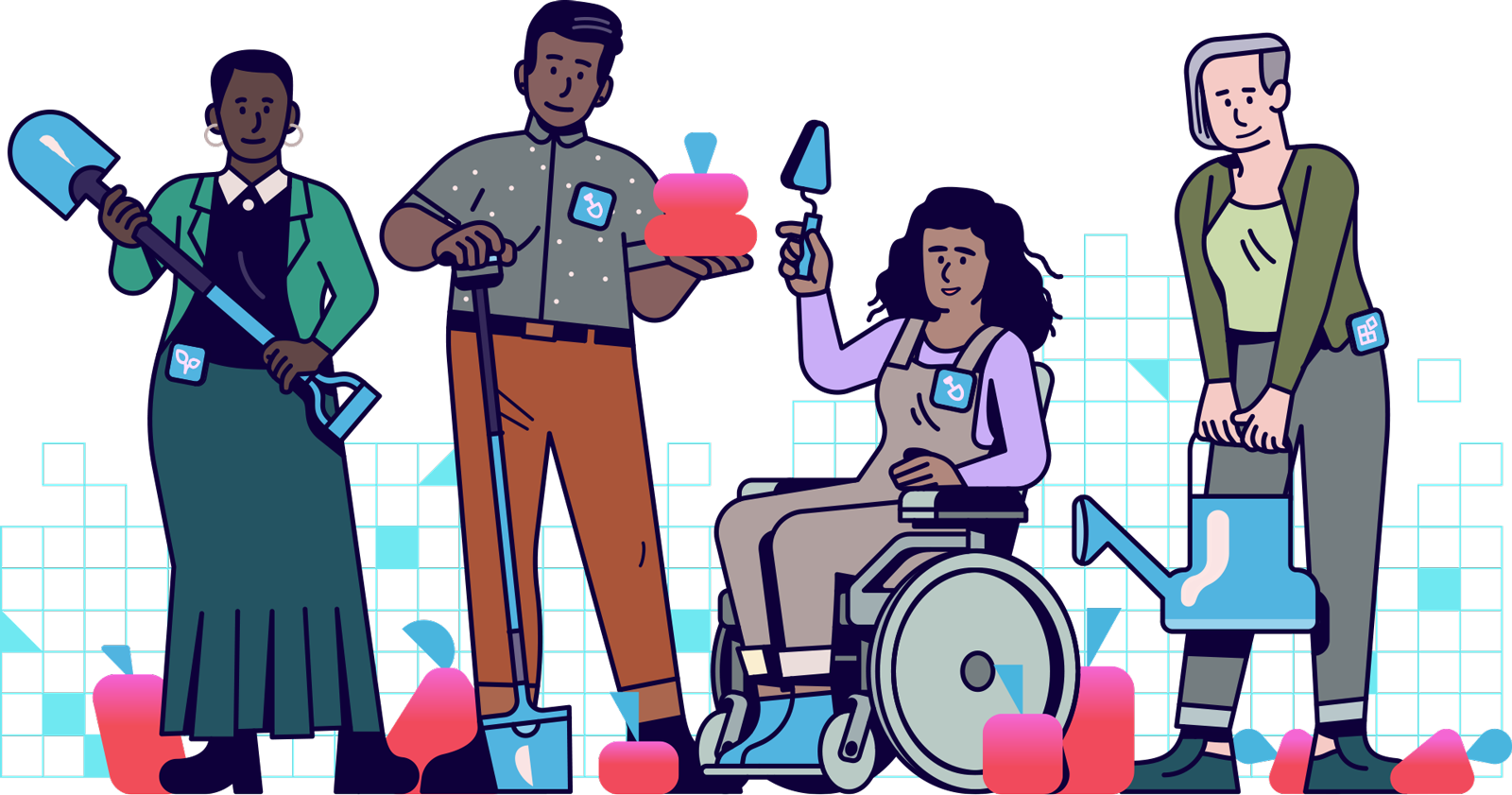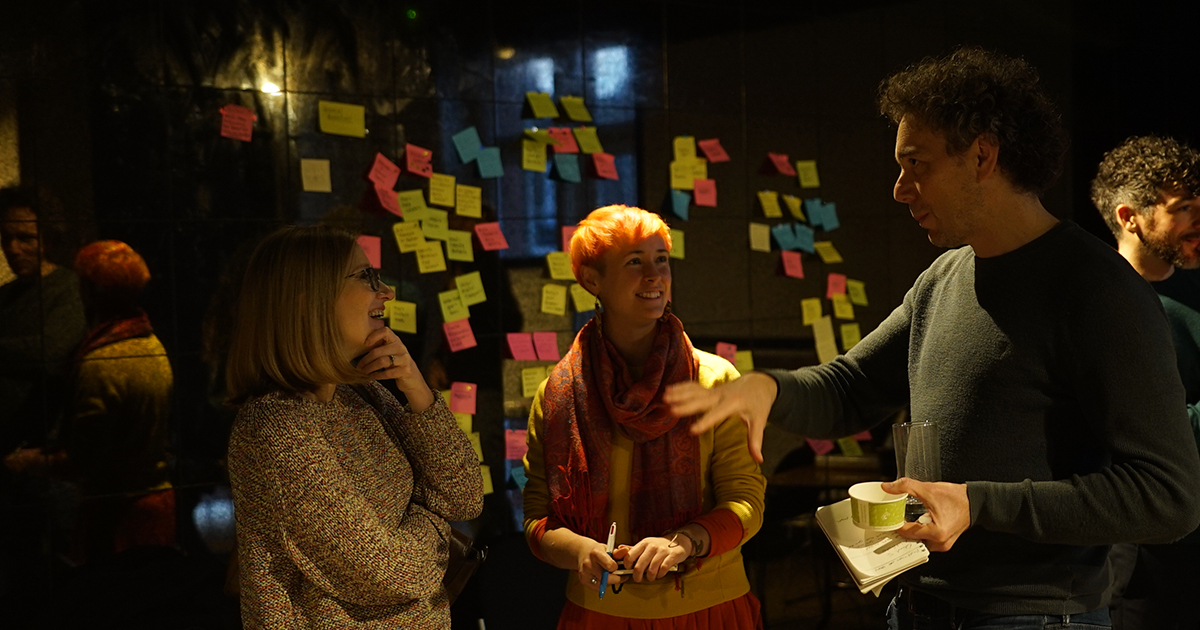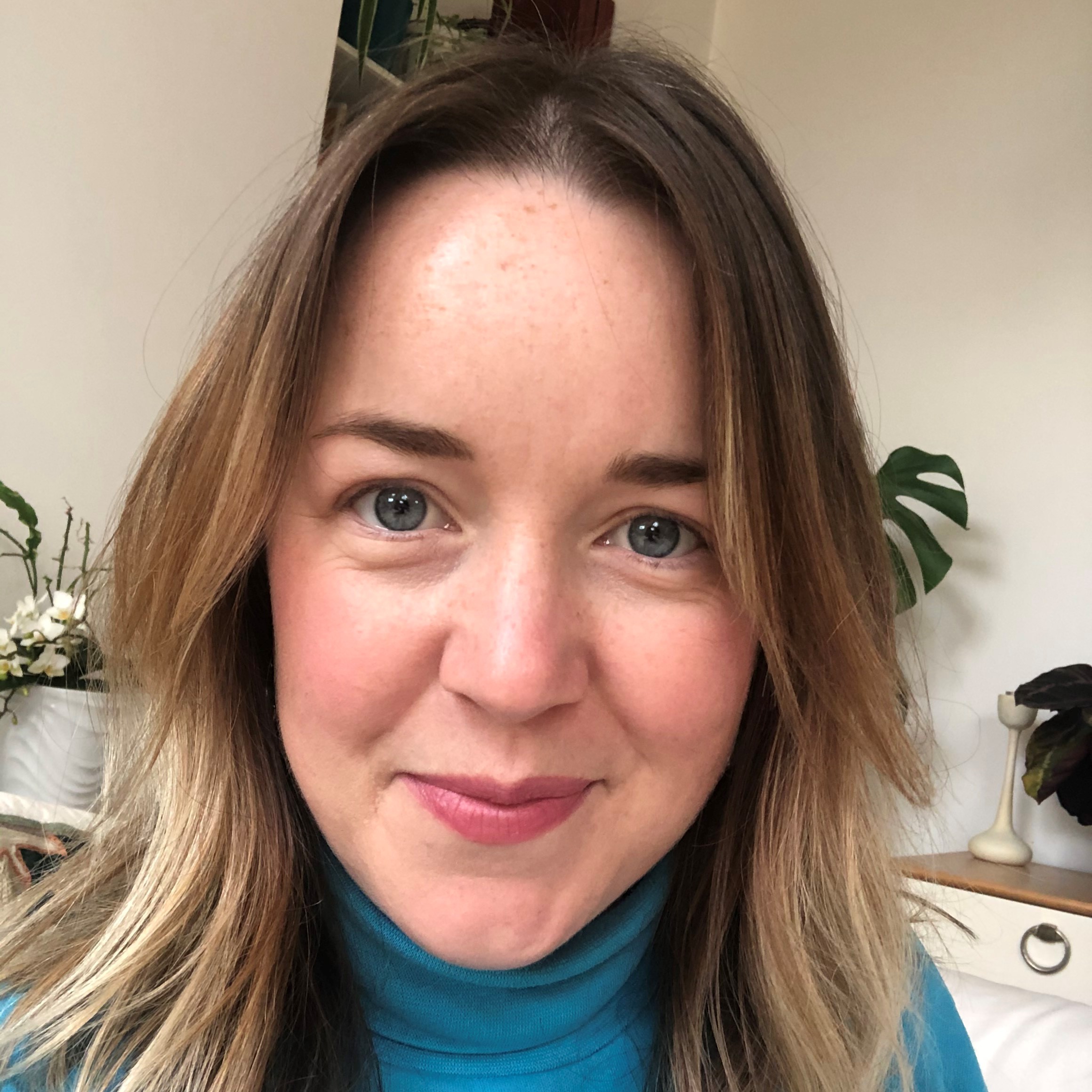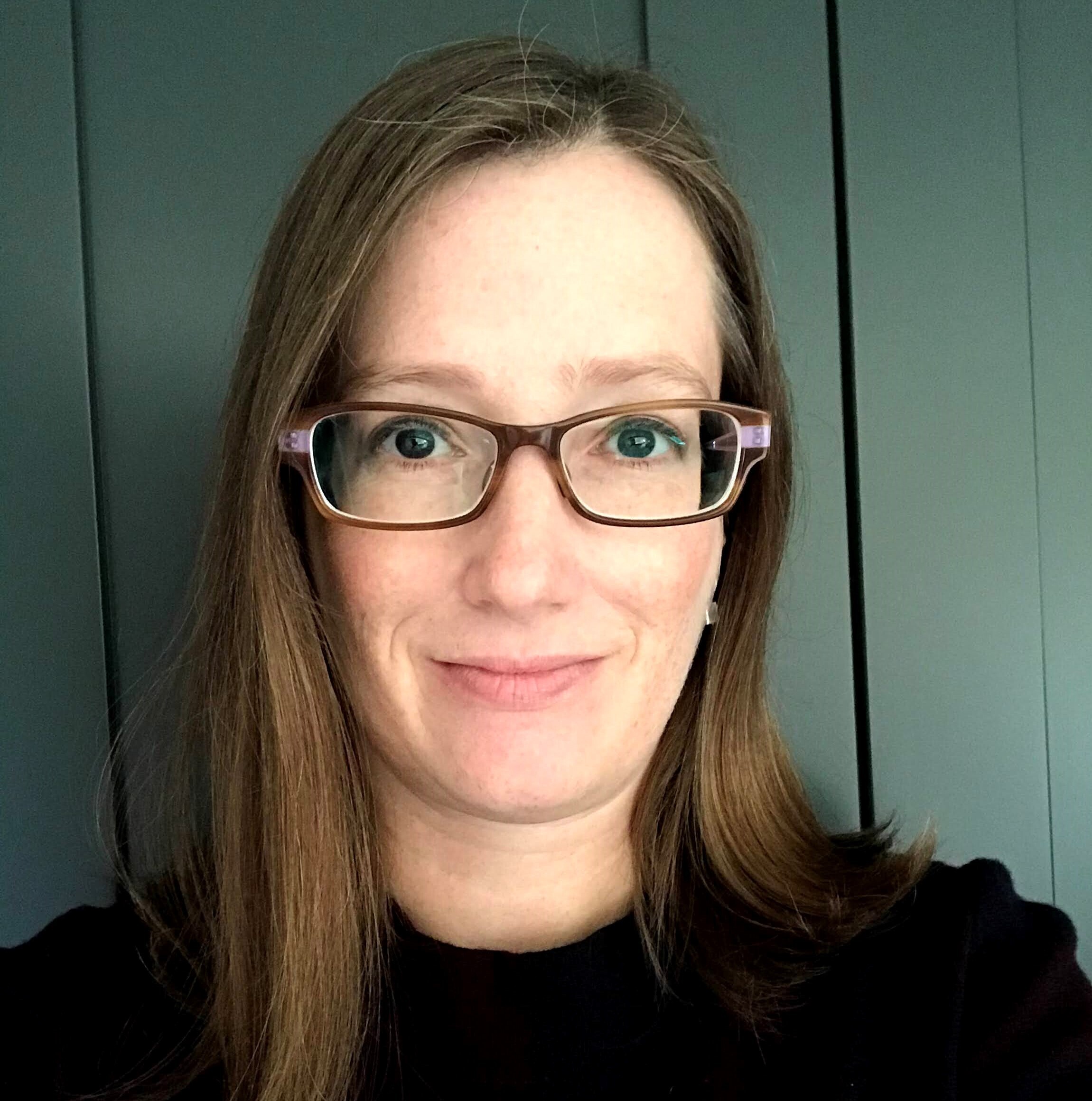
Looking for support to apply to Catalyst and The National Lottery Community Fund COVID-19 Digital Response? This week, we ran four Q&A sessions for organisations looking to apply. Missed our Q&A sessions? Here’s a summary of the support resources available and our top FAQs.
Useful resources for charities and social enterprises
You can find the recordings of the two Q&A sessions we ran for organisations looking to apply for the fund here:
We’ve also updated our FAQs and the presentation slides to include the questions we addressed during the Q&A sessions. You can view our presentation slides here:
We had some fantastic questions - here’s a selection:
Q: What do you mean by digital?
A: Great question! Sometimes it seems like everything we do is ‘digital’ - whether that’s waking up to turn off the alarm on your phone in the morning, or streaming a film in the evening.
A digital organisation is one that can operate effectively in our digital age — which means that within the leadership and operational team there is a basic (or advancing) level of digital competence and curiosity to learn to gain further confidence.
Digital is about applying the culture, practices, processes and technologies of the internet-era to make our organisations more resilient and responsive to the changing expectations, needs and behaviours of the people and communities we support.
That may be about better communication with stakeholders, improved internal processes, or more effective ways of working. It may be about understanding data to understand your service users. Or it may be about delivering services online.
Whatever is involved, it’s about ensuring that you use the power of the internet to learn about your users, centre them in your design, and iterate and respond as you learn about their needs.
For further context please have a read of the following two articles: An introduction to ‘digital’ processes and service design for charities CAST blog (6 minute read)-
What we're learning about how the sector understands 'digital' by Cassie Robinson, the National Lottery Community Fund blog (9 minute read)
Q: This funding isn't quite right for us - where can we access other sources of funding?
A: We're sorry to hear that this funding doesn't fit with you. If it's a question of religious grounds, then a percentage of government funding has been granted through other channels to ensure that funding is also available for charities and community groups, irrespective of faith. The British Muslim Covid-19 fund has grants of up to £5k to help communities impacted by COVID-19. Grantsonline.org also has a very up to date list of funding available. There are also 'COVID-19 Recovery Funds' available at more local and regional levels like the London Community Response Fund so it's worth checking with respective local councils and Community and Voluntary Sector infrastructure support bodies. You can also find more funding opportunities on our Catalyst funding page.
Q: Can you clarify please if we have to get a Discovery grant first to be eligible to apply to the Development programme?
A: You can apply directly to the Development programme, although you will have to demonstrate that you have already been through a discovery process and are clearer about the next steps with a defined and confirmed problem (through user research) and a strategy for addressing the problem.
Please note that for those doing the Discovery programme there will also be an opportunity to move on to the Development programme. At the end of the Discovery programme you can submit a brief for the assessment process of Catalyst’s Development programme, which will start on 11th January (applications for that second round of Development funding will open on 26th October).
Useful resources for digital partners
You can find the recordings of the two Q&A sessions we ran for digital partners looking to deliver support to charities through the Open Projects process here:.
- Discovery Learning Programme - delivering your own programme Q&A
- Discovery Learning Programme - adding value to a Design Hop Q&A
We’ve also updated our FAQs and the presentation slides to include the questions we addressed during the Q&A sessions. You can view our presentation slides here:
- Q&A slides - session for digital partners looking to deliver their own approach to a discovery learning programme
- Q&A slides- session for digital partners looking to deliver and add value to a Design Hop support the fund through the Open Projects process.
We also had some fantastic questions from digital partners - here’s a selection:
Q: In your experience how straightforward has it been to carry out user testing over the 4-week programme?
A: It’s a challenge getting users in place for research and testing in a 4-week timescale. What we’ve done is made charities aware up front through the application process that this is to be expected - they will need to have thought of how to recruit users in the problem area they would like to address on this programme. They will also have a bit of time between receiving a response from CAST and starting the programme to get some of these elements in place. We would also invite creative suggestions from applicants as to how CAST can best support this process!
Q: Are CAST looking for digital partners to develop their own discovery workshop process specifically for this project, or would you prefer that we used the Design Hop format?
This brief is ideally for a partner who can either deliver a Design Hop format or who has got a format that has been tested in some ways. It doesn’t have to be the specific Design Hop format but some experience in how best to teach the discovery process to other organisations is important. So having a format that has been tried and tested is essential. If you haven’t designed such a programme, you’re welcome to deliver the Design Hop process and we can give you some support behind that as well.
Q: Are you expecting any difficulty in the organisations finding time to attend and deliver their own discovery project? Can some of the agency's time potentially be used to bolster capacity?
A: Yes, we are anticipating capacity challenges based on previous experience of running support programmes. We have asked charities to commit a minimum of 20 days across the programme but that can sometimes prove challenging when juggling new learning with day-to-day responsibilities. In the case of digital partners being able to bolster the charity’’s capacity, it’s worth bearing in mind that this might be challenging with a cohort of 8-10 organisations. It may be more feasible on an individual ad hoc basis for organisations struggling to keep up but it’s best not to build that into your application.
A huge thank you to everyone who attended and participated during the sessions.
Useful resources for charities and social enterprises
You can find the recordings of the two Q&A sessions we ran for organisations looking to apply for the fund here:
We’ve also updated our FAQs and the presentation slides to include the questions we addressed during the Q&A sessions. You can view our presentation slides here:
We had some fantastic questions - here’s a selection:
Q: What do you mean by digital?
A: Great question! Sometimes it seems like everything we do is ‘digital’ - whether that’s waking up to turn off the alarm on your phone in the morning, or streaming a film in the evening.
A digital organisation is one that can operate effectively in our digital age — which means that within the leadership and operational team there is a basic (or advancing) level of digital competence and curiosity to learn to gain further confidence.
Digital is about applying the culture, practices, processes and technologies of the internet-era to make our organisations more resilient and responsive to the changing expectations, needs and behaviours of the people and communities we support.
That may be about better communication with stakeholders, improved internal processes, or more effective ways of working. It may be about understanding data to understand your service users. Or it may be about delivering services online.
Whatever is involved, it’s about ensuring that you use the power of the internet to learn about your users, centre them in your design, and iterate and respond as you learn about their needs.
For further context please have a read of the following two articles: An introduction to ‘digital’ processes and service design for charities CAST blog (6 minute read)-
What we're learning about how the sector understands 'digital' by Cassie Robinson, the National Lottery Community Fund blog (9 minute read)
Q: This funding isn't quite right for us - where can we access other sources of funding?
A: We're sorry to hear that this funding doesn't fit with you. If it's a question of religious grounds, then a percentage of government funding has been granted through other channels to ensure that funding is also available for charities and community groups, irrespective of faith. The British Muslim Covid-19 fund has grants of up to £5k to help communities impacted by COVID-19. Grantsonline.org also has a very up to date list of funding available. There are also 'COVID-19 Recovery Funds' available at more local and regional levels like the London Community Response Fund so it's worth checking with respective local councils and Community and Voluntary Sector infrastructure support bodies. You can also find more funding opportunities on our Catalyst funding page.
Q: Can you clarify please if we have to get a Discovery grant first to be eligible to apply to the Development programme?
A: You can apply directly to the Development programme, although you will have to demonstrate that you have already been through a discovery process and are clearer about the next steps with a defined and confirmed problem (through user research) and a strategy for addressing the problem.
Please note that for those doing the Discovery programme there will also be an opportunity to move on to the Development programme. At the end of the Discovery programme you can submit a brief for the assessment process of Catalyst’s Development programme, which will start on 11th January (applications for that second round of Development funding will open on 26th October).
Useful resources for digital partners
You can find the recordings of the two Q&A sessions we ran for digital partners looking to deliver support to charities through the Open Projects process here:.
- Discovery Learning Programme - delivering your own programme Q&A
- Discovery Learning Programme - adding value to a Design Hop Q&A
We’ve also updated our FAQs and the presentation slides to include the questions we addressed during the Q&A sessions. You can view our presentation slides here:
- Q&A slides - session for digital partners looking to deliver their own approach to a discovery learning programme
- Q&A slides- session for digital partners looking to deliver and add value to a Design Hop support the fund through the Open Projects process.
We also had some fantastic questions from digital partners - here’s a selection:
Q: In your experience how straightforward has it been to carry out user testing over the 4-week programme?
A: It’s a challenge getting users in place for research and testing in a 4-week timescale. What we’ve done is made charities aware up front through the application process that this is to be expected - they will need to have thought of how to recruit users in the problem area they would like to address on this programme. They will also have a bit of time between receiving a response from CAST and starting the programme to get some of these elements in place. We would also invite creative suggestions from applicants as to how CAST can best support this process!
Q: Are CAST looking for digital partners to develop their own discovery workshop process specifically for this project, or would you prefer that we used the Design Hop format?
This brief is ideally for a partner who can either deliver a Design Hop format or who has got a format that has been tested in some ways. It doesn’t have to be the specific Design Hop format but some experience in how best to teach the discovery process to other organisations is important. So having a format that has been tried and tested is essential. If you haven’t designed such a programme, you’re welcome to deliver the Design Hop process and we can give you some support behind that as well.
Q: Are you expecting any difficulty in the organisations finding time to attend and deliver their own discovery project? Can some of the agency's time potentially be used to bolster capacity?
A: Yes, we are anticipating capacity challenges based on previous experience of running support programmes. We have asked charities to commit a minimum of 20 days across the programme but that can sometimes prove challenging when juggling new learning with day-to-day responsibilities. In the case of digital partners being able to bolster the charity’’s capacity, it’s worth bearing in mind that this might be challenging with a cohort of 8-10 organisations. It may be more feasible on an individual ad hoc basis for organisations struggling to keep up but it’s best not to build that into your application.
A huge thank you to everyone who attended and participated during the sessions.

Support & services
Our free services help you make the right decisions and find the right support to make digital happen.
Learn what other non-profits are doing
39+ organisations share 50+ Guides to how they use digital tools to run their services. Visit Shared Digital Guides.

CAST and Catalyst: the journey, the transition - and beyond






